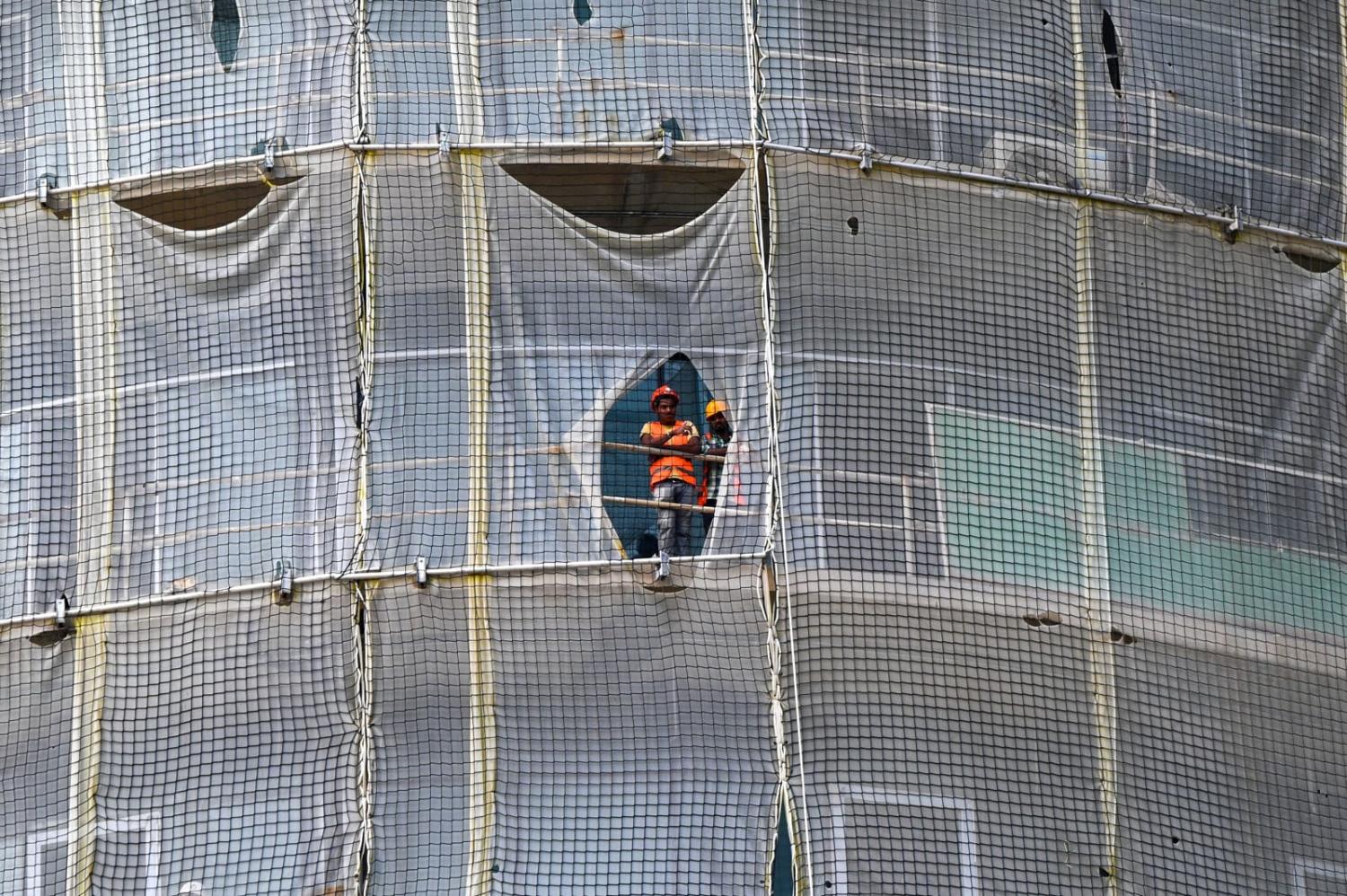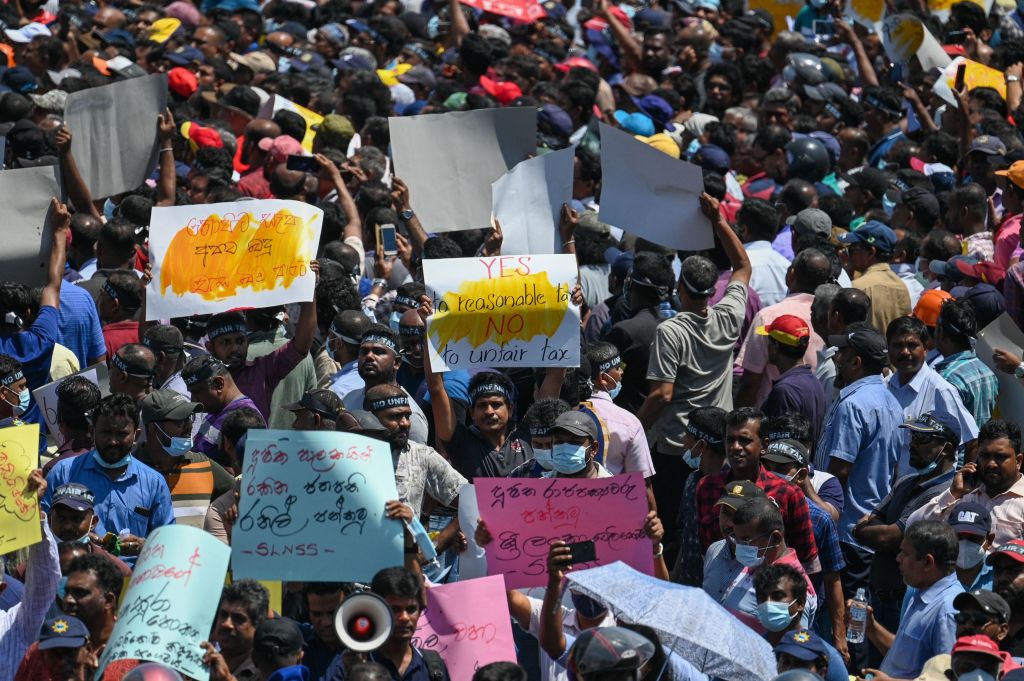More than just urgent debt relief, the country also
needs help addressing a humanitarian crisis.

Sri Lanka turned 75 this month. Despite an unfolding economic and humanitarian crisis, the government chose to celebrate Independence Day on 4 February with an extravagant military parade. The event served to spur more protests from a public where more than half of households are struggling to put food on the table.
Sri Lanka’s debt challenges, which exploded last year, are only getting worse. Recent news indicates that the government was unable to honour its guarantee of the national airline’s bond repayment obligations. Meanwhile, the government has only been able to pay government suppliers by issuing more domestic debt at interest rates as high as 30 per cent. President Ranil Wickremesinghe has admitted that the country is effectively bankrupt.
It has been almost six months since the International Monetary Fund agreed in principle to provide an emergency loan of US$2.9 billion, with the hope to essentially tide over the ongoing balance of payments issues. Unlocking these funds, however, depends on the IMF receiving assurances from major bilateral creditors that they will eventually provide an adequate amount of debt relief.
The Paris Club of traditional (Western) government creditors has provided the necessary assurances. China, however, is Sri Lanka’s biggest bilateral creditor and so far has only committed to a two-year moratorium on debt service payments – and only for loans for its EXIM bank. Beijing continues to argue that loans from China Development Bank – its other policy bank engaged in overseas lending – should be treated as commercial and outside the framework for official creditors.
China is also insisting that the multilateral development banks (notably the World Bank and Asian Development Bank) must participate in any debt restructuring. This goes against the established norm. Loans from multilateral banks are already highly concessional and historically multilateral debt relief has only been provided with offsetting compensation from the bank’s shareholders. In any case, by challenging the status quo in this way, China is delaying the likelihood of a quick resolution.
Consequently, the IMF now appears to be considering an emergency program without China. Doing so carries significant risks – notably that China might benefit from IMF financing and any restructuring deal while contributing less in debt relief than other creditors.
Nonetheless, a way forward is desperately needed. The country’s economic woes are pushing many Sri Lankan households into poverty. Food inflation has been among the worst in the world, with prices about 60 per cent higher at the end of 2022 compared to a year ago, and the World Food Program estimating more and more households are suffering shortages.

Sri Lanka’s public healthcare system – previously seen as perhaps the best in South Asia – is at breaking point. Import controls imposed to protect dwindling foreign exchange reserves have created acute shortages of essential imported medicines. Life-saving drugs are in limited supply while most public hospital outpatients are forced to pay out-of-pocket for high-cost medications – some of which are about three times the average monthly salary in Sri Lanka. People are consequently forced to rely on overseas networks for financial help or go without. Many doctors are also migrating overseas in the hope of supplementing incomes back home.
All of this is a massive reversal of the laudable progress Sri Lanka had previously made in eradicating extreme poverty, especially between 2008–13. The latest World Bank report indicates that even before the present economic turmoil, poverty had already doubled during 2021–22, compounding the impact of the Covid-19 pandemic.
The IMF loan will do little to reverse the deep human costs of the crisis. Food prices will continue to be high even if the pace of inflation is reined in. Meanwhile, Sri Lankans have lost around a decade’s worth of growth in average real wages – exacerbating already stark inequalities between the elites and the rest of the country. None of this will be undone by the approval of the IMF loan, which will only create a limited amount of financial breathing space.
The IMF and bilateral creditors need to pay much more attention to the large social financing needs Sri Lanka faces – and make sure these are reflected in any debt relief and financing package. An important near-term task will be working with the government to address critical data gaps that limit understanding of the true scale of the challenges around food, health, education and poverty.
Sri Lanka’s main poverty reduction program – Samurdhi – needs urgent expansion, with more financial support and broader coverage. Most vulnerable households are still excluded from government support, with a recent UNICEF report estimating almost 60 per cent of the poorest households with children currently do not benefit.
A starting point would be widening the targeting criteria for access to Samurdhi to support a broader subset of the population, noting that many previously non-poor households have been pushed into poverty. Work should begin now on improving the household data registry to provide a more efficient and sustainable solution.
Ultimately, confronting the mounting human costs of Sri Lanka’s debt will require not only substantial (and urgent) debt relief but also a sizeable and sustained increase in concessional financing.
A product of the Lowy Institute Indo-Pacific Development Centre, with funding support from the Australian Department of Foreign Affairs and Trade.
